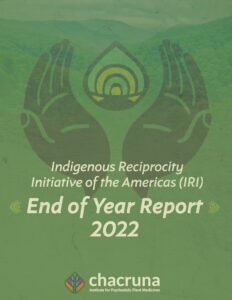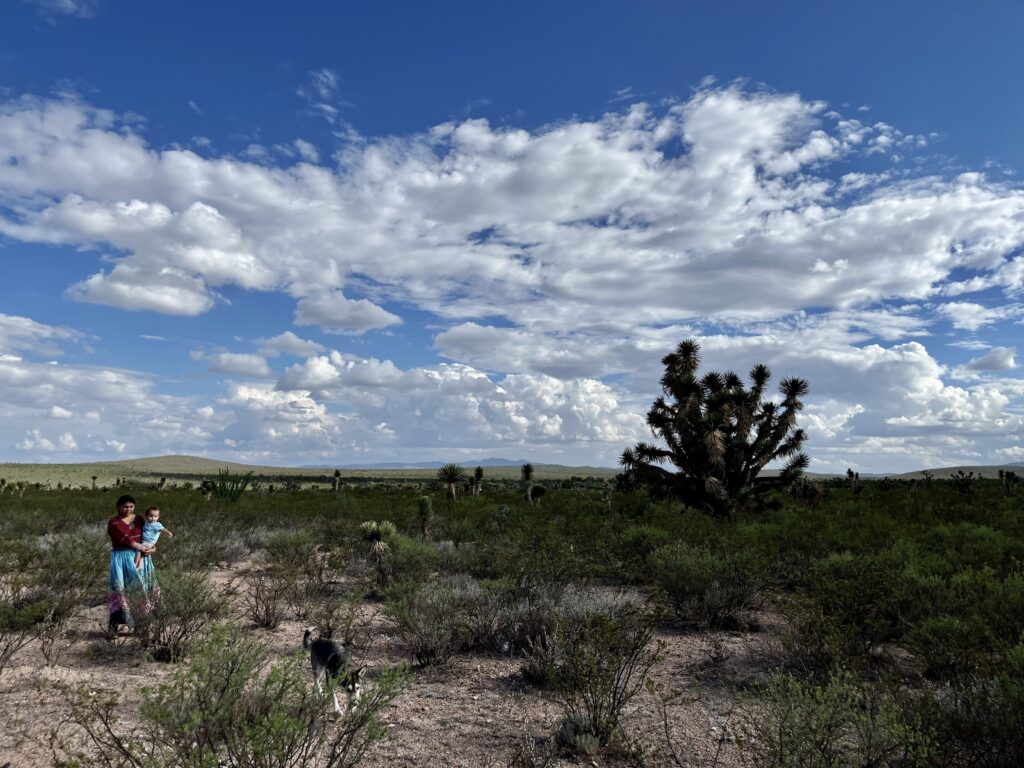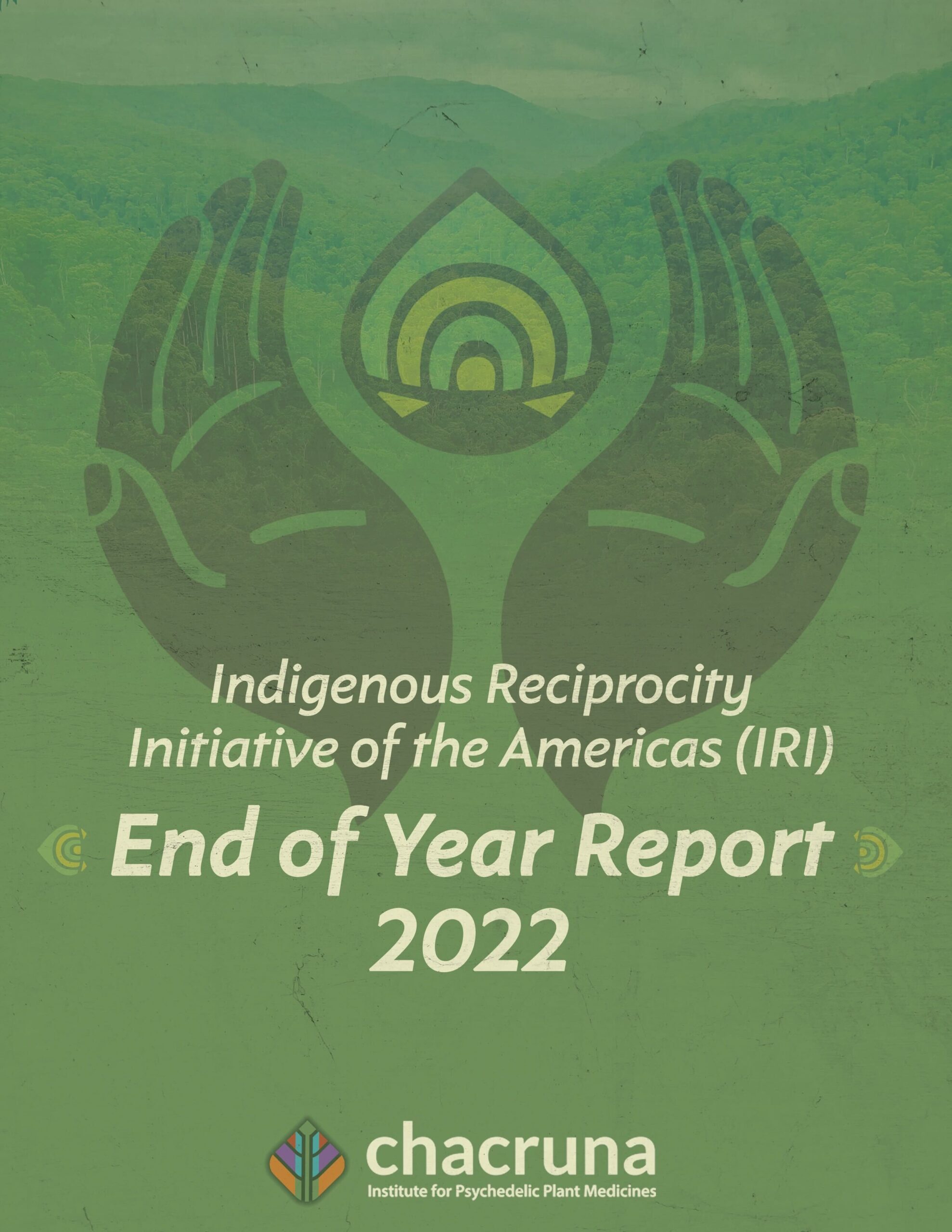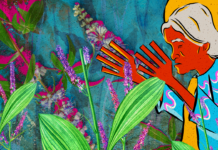- Meet Chacruna at Psychedelic Science 2025 - May 27, 2025
- Psychedelics and Attachment: Fundamentals, Implications, and New Frontiers - May 16, 2025
- Development Outreach Internship (OPEN) - May 6, 2025
Chacruna launched the Indigenous Reciprocity Initiative of the Americas (IRI) in April 2021 as a community-directed biocultural conservation program that allows people to connect with grassroots Indigenous community organizations at the local level with the aim of ‘giving back’ to the cultural regions that support Indigenous plant use and knowledge. The IRI Program aims to decolonize philanthropy by creating a pool of funds that supports Indigenous initiatives with no strings attached—addressing everything from food security and environmental health to economic and educational support, cultural conservation, and more.

Who IRI Supports:
The IRI Program is the product of working directly with Indigenous leaders and small, non-profit coordinators who prioritize the autonomy of local people. IRI consists of 20 organizations supporting 38 different Indigenous groups in multiple communities across Brazil, Colombia, Ecuador, Peru, Costa Rica, Mexico, and the United States.
- Brazil: RAIN (Reforestation Agroforestry Impact Network) – Kaingang, Terena, Noke Koi/Katuquina; Yawanawa Sociocultural Association Yawanawa; Federation of the Huni Kuῖ People of the State of Acre (FEPHAC) Huni Kuin;
- Colombia: The Land of Origins Project – Kamëntšá
- Ecuador: Sacha Warmi Foundation – Kichwa; Yakum – Shuar, Kichwa, Cofan, Siekopai; Amazon Frontlines – Siona, Secoya, Kofan, Waorani; De La Tierra – Kofan
- Peru: Alianza Arkana – Shipibo-Konibo; Xapiri Ground – Matsigenka, Iskonawa, Matsés, Awajún, Yine; Mosqoy – Quechua, The Seven Elements – Yanesha, Ashaninka
- Costa Rica: Stibrawpa Association – Bribri
- Mexico: Hablemos de Hikuri – Wixáritaari/Huichol; Wixárika Research Center (WRC) – Wixarika; PSYDEH – Náhuatl, Otomí, Tepehua; El Consejo indígena pro‐rescate del patrimonio cultural mazateco (CIPREPACMA) Mazatec A.C.
- United States: Sia – Comanche/Numunuh; Buffalo Field Campaign (Lakota, Sioux, Nez Perce/Nimiipuu; The Navajo Water Project – Diné
IRI is open-source. You can always bypass IRI and Chacruna to donate directly to any of our partners who have that capacity. Learn more about all the groups IRI supports at www.chacruna-iri.org/regions.
2022 Outcomes
Since IRI launched in April of 2021, the program has raised $130,000 to support community-led, grassroots projects designed and implemented by local peoples to address their own self-determined needs. These funds are equally-distributed among all twenty IRI partners, who have full control over the use and management of their resources. Such an approach works towards a process of reciprocity between the psychedelic ecosystem of the Global North and the communities who have historically and ongoingly created the conditions for the current wealth of plant use and knowledge.
2022 was marked by several dramatic crashes in the “psychedelic stock market”. Despite these challenges, IRI still raised $35,000. With 7.5% going towards bank transfer fees and other related operating expenses, approximately $1,500 has gone directly to each of our Indigenous and local partners.
Although corporate contributions dropped, Individual donations rose by 95%, including 25+ recurring monthly donors and approximately $20,000 (63.6%) coming from individual supporters.
Several psychedelic research, training, and integration organizations also committed to yearly donations to IRI from a percentage of their profits in 2023, including Nectara, Onaya, Psychae, Cacti Therapeutics, InnerTrek and the Etheridge Foundation.
Amidst funding setbacks, The IRI Program has been dedicated to public outreach, building relationships, providing on-the-ground support, and producing high quality video content with our partners.
Impact Report:
These contributions have had an invaluable impact on the progress of the projects that IRI supports and made a real difference in the lives our Indigenous partners.
- With your support, our partners at CIPREPACMA launched a Mazatec-Spanish community radio and held an ofrenda in Chilchotla to restore their local spring as a source of clean water, as part of their struggle for linguistic conservation, religious rights, and environmental remediation.
- CIPREPACMA also had a new logo designed to coincide with the formal re-launch of their Community Association.
- IRI supported a gathering of our Wixarika partners in San Luis Potosi to support a conference of community associations implementing agroforestry projects with the Wixarika Research Center.
- Hablemos de Hikuri was able to continue building community coalitions for the conservation of hikuri (peyote), counting and monitoring peyote populations and protecting them from poaching.
- IRI is in the process of transcribing and translating many hours of material and will continue co-producing videos with our partners based on their needs over the coming months.
- PSYDEH launched their Indigenous-led economic solidarity network, Red Sierra Madre and their digital inclusion programming, Tec para Todos.
- Yakum celebrated the planting of 40,000+ trees by Kichwa, Cofan, Siekopai, and Shuar associations selecting native food species in their pursuit of greater food security and autonomy.
- FEPHAC Chief Ninawa Huni Kuin’s association, used IRI funds to quickly address a food and water emergency last year during historic protests against the genocide of Indigenous women in Brasilia by bussing them supplies.
- RAIN funded the construction of Kaingang nurseries capable of producing 70,000 trees per year to reforest territories with their traditional Parana pine.
- Xapiri Ground has continued their Matsigenka community-directed audiovisual documentation of traditional songs and stories.
- Alianza Arkana implemented pilot medicinal plant gardens and seed-sharing initiatives in their Shipibo-Konibo communities.
- Sacha Warmi brought an investigative journalist from Quito to report on the illegal extraction of timber and forest resources in the land of the Kichwa people in the Lower Kuraray and the Intangible zone of the Tagaeri-Taromenane.
We debuted the first preview of material we produced with our Mazatec partners at the Horizons NYC conference. This month, we also published another preview of videos we filmed with our Wixarika partners in San Luis Potosi. Chacruna continued with the #IndigenousReciprocityThursdays series, including reports on our fieldwork in Mexico. IRI has maintained a strong media presence in 2022; Chacruna Latinoamérica published a Spanish version of our article from the MAPS Bulletin.
IRI has grown to include Chacruna’s Research Coordinator Nicholas Spiers, Project Coordinator Horacio Guevara, Associate Director of Chacruna Latinoamerica Glauber Loures de Assis, and Indigenous and Community Affairs Officer Marlena Robbins.
Members of the IRI Team disseminated information on IRI’s approach and content by presenting at 21+ different forums, universities, and courses.
IRI Program Director, Joseph Mays, sat down with One Degree Shifts and Psychedelic Entrepreneur, and presented at Horizons 2022, the II Simposio Internacional Sobre Hongos Sagrados y Psilocybina, as well as:
- Soltara Healing Center
- Naropa University
- UC Berkeley
- Stanford University
- Munay Community
- DoubleBlind
- University of Southern California
- Capital Psychedelic Coalition
- Psychedelics Today (VITAL)
- InnerTrek (Oregon)
- Big Psych (Minneapolis)
- Horizons NYC
- UNAM (ADHS conference)
- Drala Mountain Center
- National Medicine Healing Alliance
- Psilocybin Symposium (Mexico City)
- National Psychedelic Association
- North Star (Guiding Light)
- Chacruna Institute (Shamanism course)
- and more!
Joseph met 22+ community partners as an advisor and consultant to strengthen IRI’s support network:
- National Psychedelic Association (Britt and Matthew Ettinger)
- Reilly Capps (Independent Journalist)
- Shift Network
- UMIYAC (Colombia Union of Yage Healers)
- David Grillot (Thank You Plant Medicine)
- Lucy Scientific Discovery (Meyers)
- Sacred Garden (Reiman)
- Jeff Leifer
- Psychedelic Spotlight
- Olivia Mannix (Felicity Pharma)
- Brian Muraresk
- National Council for Federal Psychedelics Priorities
- Diego Ramos (USC)
- Carol Pickering (Educational Foundation of America)
- Simeon Schnapper (JLS Fund)
- Mary Olivar (Greenbelt Capital)
- David Esselman (Brain Futures)
- Nectara Advisory Board
- Olivia Marcus (NYU)
- Cubed (Adam Coape-Arnold)
- Simon Ruffel (ONAYA/Psychae)
- The Michael and Annie Falk Foundation
- Sky Thai Yeager
IRI Research Coordinator Nicholas Spiers also gave 10+ lectures in 2022 on IRI, Mazatec shamanism and its intersection with the psychedelic renaissance for different prestigious conferences and courses:
- CIIS (Guest Lecturer)
- Student Psychedelic Conference
- Psychedelics Today (VITAL)
- Integrated Psychiatry Institute
- Alcohol and Drugs History Society
- University of Arizona
- Chacruna: Roots of Psychedelic Therapy
- Horizons NYC
- II Simposio Internacional sobre Hongos Sagrados y Psilocibina
- Integrated Psychiatry Institute: Psychedelic Assisted Therapy Training Course
Plans for 2023: Together with our IRI partners, we will spend the next year:
- Applying for grants to make IRI sustainable and continue a consistent stream of support for our Indigenous and local partners and their ongoing projects.
- Continuing to produce documentary-style films and videos in collaboration with participating IRI partners to produce educational material, fundraise, and serve their project goals.
- Launching a special community forum series around IRI with Indigenous activists, scholars. And researchers to raise money for the IRI program and highlight important issues.
Special Thank Yous: Heroic Hearts Project, Dr. Bronner’s, Raoul Koning

IRI’s Theory of Change:
IRI recognizes that a 100% ground-up structure emphasizing local agency that challenges conventional philanthropic models is the most meaningful way to support Indigenous and local community autonomy and the most impactful way to support biocultural diversity. IRI serves as a platform for reciprocity, education and collaboration:
- Raising unconditional funding: Accepting donations with strict adherence to the terms set by IRI partners, distributing funds evenly (no strings attached). This flexible funding is used to address the immediate and constantly changing needs of community projects.
- Providing a platform for education: Presenting at conferences & universities, co-producing publications exploring reciprocity, biocultural conservation, plant medicine, and Indigenous rights.
- Providing support through research and audio-visual services: Engaging with Indigenous and local stakeholders on their terms to support existing initiatives by providing relevant ethnographic and audiovisual materials as needed and when possible.
https://www.chacruna-iri.org
https://www.chacruna-la.org
[email protected]
Take a minute to browse our stock:
Did you enjoy reading this article?
Please support Chacruna's work by donating to us. We are an independent organization and we offer free education and advocacy for psychedelic plant medicines. We are a team of dedicated volunteers!
Can you help Chacruna advance cultural understanding around these substances?














